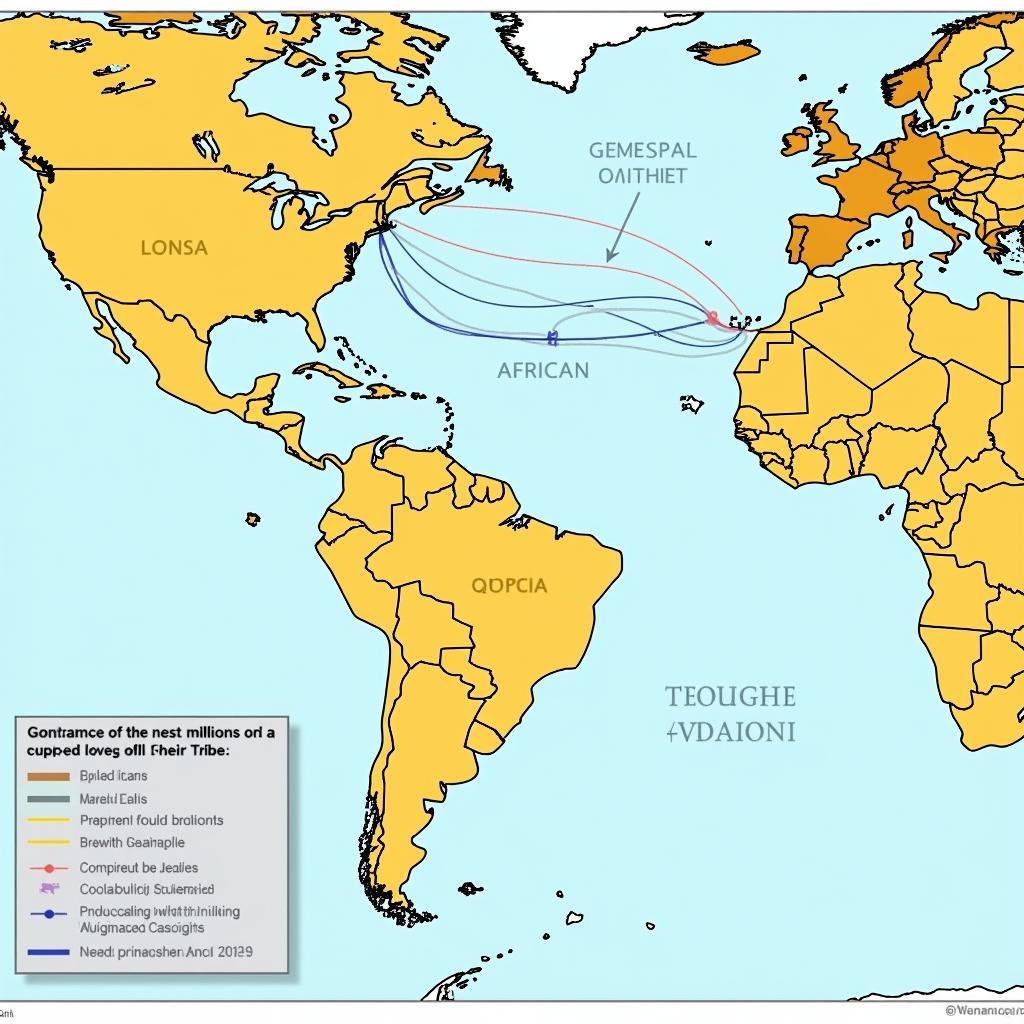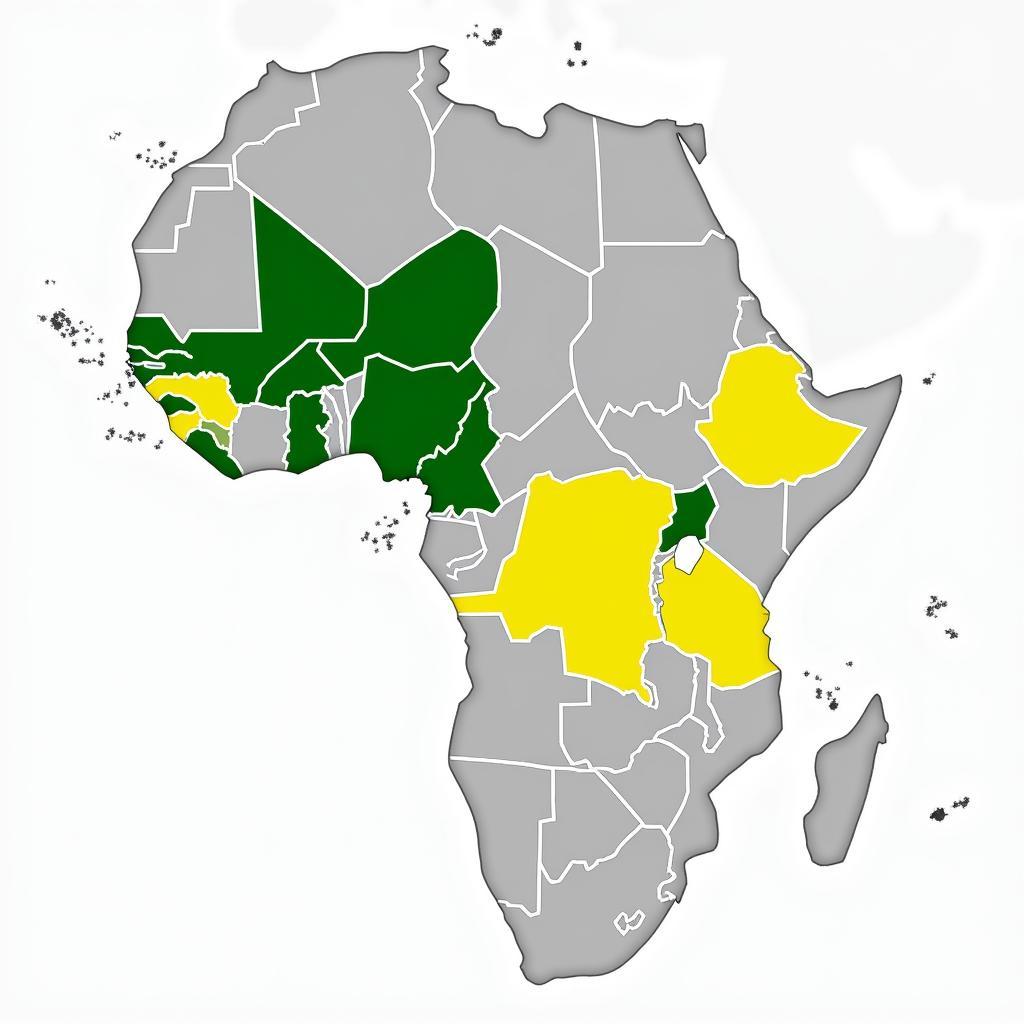Understanding the African Diaspora: Examples and Impact
The African Diaspora, encompassing the mass dispersion of people of African descent across the globe, represents a complex and significant phenomenon woven deeply into the fabric of human history. Understanding African Diaspora Examples provides a glimpse into the lasting impact of forced migration, cultural resilience, and the ongoing struggle for recognition and equality.
 Map of the Transatlantic Slave Trade
Map of the Transatlantic Slave Trade
The Transatlantic Slave Trade: A Catalyst for Diaspora
The most well-known and impactful example of the African Diaspora is the Transatlantic slave trade, a period spanning over four centuries where millions of Africans were forcibly taken from their homelands and transported to the Americas as enslaved people. This brutal system of exploitation and oppression had a profound impact on the demographics, economies, and cultures of the Americas. It led to the establishment of large populations of African descent in countries like Brazil, the United States, Haiti, and Cuba, where their forced labor fueled the growth of colonial economies.
This forced migration resulted in the severing of cultural and familial ties, leading to a process of cultural adaptation and reinvention in the Americas. The resilience of these communities is evident in the enduring legacy of African traditions in music, dance, cuisine, and spirituality across the Americas, demonstrating the enduring power of cultural heritage in the face of adversity.
Beyond the Americas: Exploring Diverse Diasporic Experiences
While the Transatlantic slave trade is a defining chapter in the African Diaspora, it is essential to recognize that African diaspora examples are not limited to the Americas. Centuries of trade, colonialism, and more recent migration patterns have led to the establishment of African communities in various parts of Europe, the Middle East, and Asia.
African Presence in Europe: From Ancient Rome to Modern Migrations
African presence in Europe dates back to antiquity, with evidence of African soldiers, merchants, and slaves in the Roman Empire. The Moorish conquest of the Iberian Peninsula in the 8th century left a lasting legacy on Spanish and Portuguese culture, architecture, and even language.
More recently, the post-World War II era saw an influx of migrants from former European colonies in Africa, seeking economic opportunities and contributing to the cultural landscape of countries like France, the United Kingdom, and the Netherlands.
The African Diaspora in Asia and the Middle East: Centuries of Exchange
The Indian Ocean trade routes facilitated centuries of cultural and commercial exchange between the African continent and regions like India, the Arabian Peninsula, and China. This resulted in the establishment of thriving African communities in port cities and trading centers, contributing to the cultural melting pot of these regions. For example, the Siddi people of India, descended from African traders and sailors, have preserved their cultural traditions for generations.
Contemporary Migration and the Evolving Diaspora
In the 20th and 21st centuries, factors like globalization, political instability, and economic disparities have led to new waves of African migration to various parts of the world. These individuals and communities contribute to the cultural, economic, and social fabric of their adopted homes, further enriching the tapestry of the African Diaspora.
 African Diaspora Cultural Festival
African Diaspora Cultural Festival
The African Diaspora: A Tapestry of Resilience and Cultural Fusion
Exploring African diaspora examples reveals a complex narrative of resilience, adaptation, and the enduring legacy of African cultures across the globe. From the Americas to Europe, Asia, and beyond, the descendants of Africa have enriched the cultural, social, and economic landscapes of their adopted homes while navigating the challenges of displacement, discrimination, and the search for belonging.
Recognizing the diversity of experiences within the African Diaspora is crucial to understanding the multifaceted impact of forced migration, the enduring power of cultural heritage, and the ongoing pursuit of equality and justice for people of African descent worldwide.


